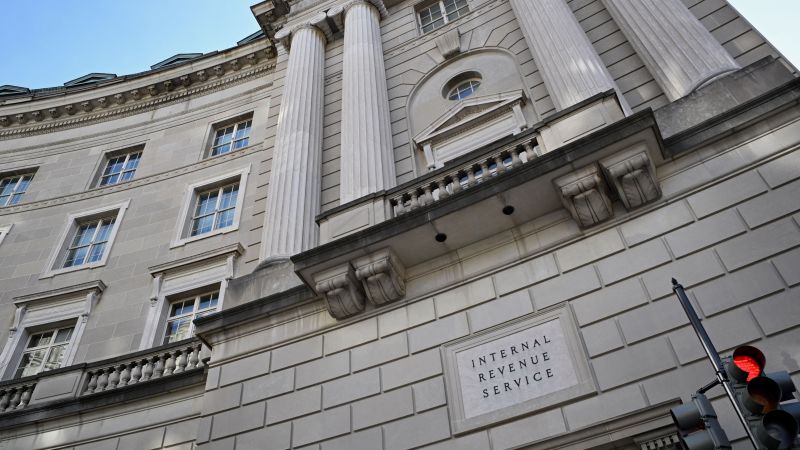A group of US lawmakers wants answers from tax preparation companies, including TaxAct and H&R Block, about whether they may be continuing to transfer sensitive taxpayer data to tech platforms like Meta for advertising purposes, following a warning of possible penalties over the practice by federal regulators.
In letters to five tax prep giants dated Wednesday, the lawmakers demanded to know if the companies have heeded the warning by the Federal Trade Commission, which told the companies in September they could face billions of dollars in fines if it turns out they violated their customers’ privacy.
“Americans should be able to file their taxes without fear that their sensitive data will be shared with Big Tech companies,” said the letters, copies of which were obtained by CNN.
CNN has contacted the tax preparation firms for comment.
A spokesperson for H&R Block said the company “takes protecting our clients’ privacy very seriously, and we have taken steps to prevent the sharing of information via pixels.”
The letters — led by Massachusetts Democratic Sen. Elizabeth Warren — focus on the use of tracking technology developed by tech platforms and embedded within the tax prep companies’ websites that quietly transferred users’ personal information to Meta and Google, allegedly without their consent.
The information collected included basic personal data, such as names and email addresses, but also highly specific data about users’ incomes, filing statuses and refund amounts, according to the results of a months-long congressional investigation Warren announced in July.
In some cases, the investigation found, the tracking technology also monitored which buttons and text fields users may have clicked on while filling out their taxes, which could reveal what tax breaks they may have claimed or which government programs they use. The probe began in late 2022 after an initial report by the investigative journalism website The Markup uncovered the practice.
During the probe, Meta told investigators it used the taxpayer data it received to target third-party ads to users of its platform and to train its artificial intelligence algorithms, the investigation’s final report said. A Meta spokesperson said in July that the company instructs its partners not to use its tools to share sensitive information and that Meta’s systems are “designed to filter out potentially sensitive data it is able to detect.”
Google told CNN in July it prohibits business customers from uploading sensitive data to its platform that could be traced back to a person, and has policies against advertising to people based on sensitive information.
While trackers like Meta’s and Google’s are commonly used across the internet, in this context their use allegedly led to sensitive financial information being used for non-financial purposes without consent, a potential violation of US consumer protection law.
The FTC warned five companies in September about the legal risks they could face for potentially misusing so-called “tracking pixels” from companies such as Meta: H&R Block; Intuit, the maker of TurboTax; TaxAct; TaxSlayer; and Ramsey Solutions. Wednesday’s congressional letters were sent to those same companies.
The FTC “is warning recipients they could incur civil penalties of up to $50,120 per violation if they misuse personal data in ways that run counter to the original purpose for which this information was collected,” the agency said at the time.
Of the five tax prep companies, Intuit was not a major focus of the initial congressional probe because it did not use tracking pixels to the same extent as the others, the investigation found.
But on Wednesday, Warren and her colleagues — Sens. Ron Wyden, an Oregon Democrat; Richard Blumenthal, a Connecticut Democrat; Illinois Democrat Tammy Duckworth; Vermont Independent Bernie Sanders; Sheldon Whitehouse, a Rhode Island Democrat; and House Democratic Rep. Katie Porter of California — included Intuit among the recipients of their letters, saying they wanted to make sure that the company has not begun misusing tracking pixels since the congressional investigation.
They also asked the same question of each of the four other tax prep companies, as well as requesting a commitment to abide by the FTC’s warning not to use customer data in ways consumers did not expressly approve.
The lawmakers requested that the tax prep firms respond by Nov. 8.
Read the full article here




